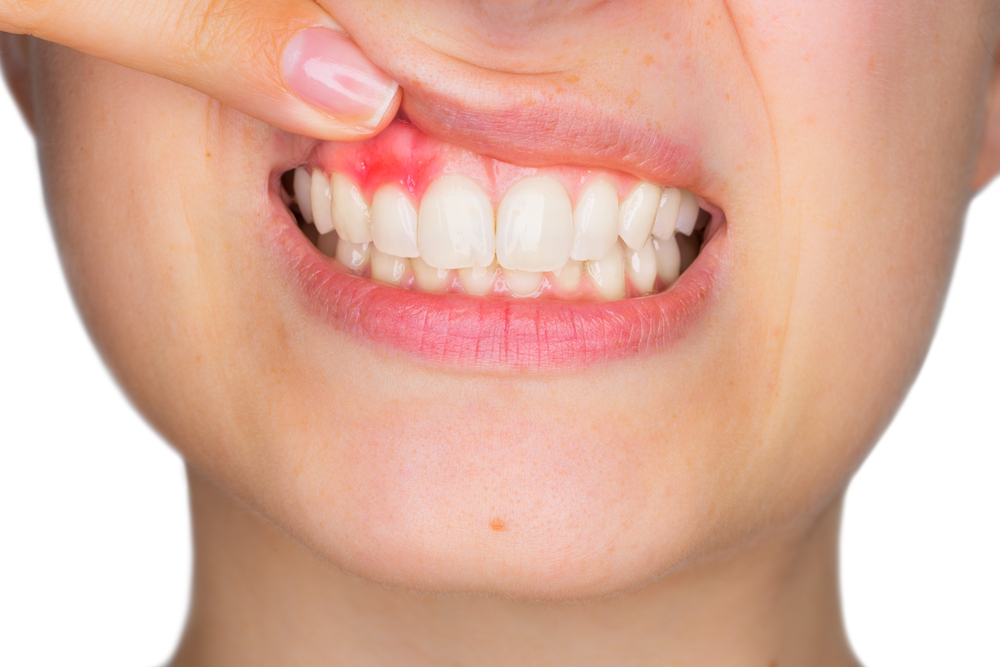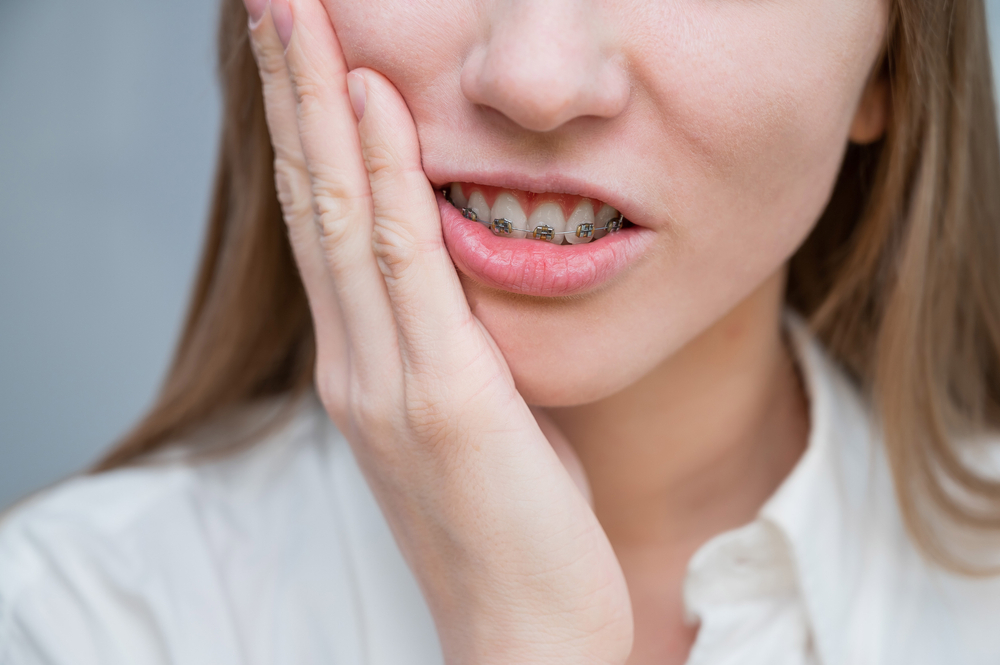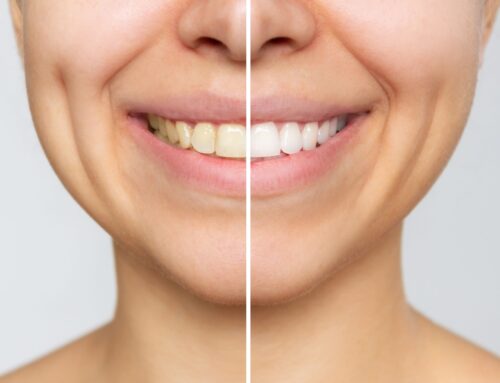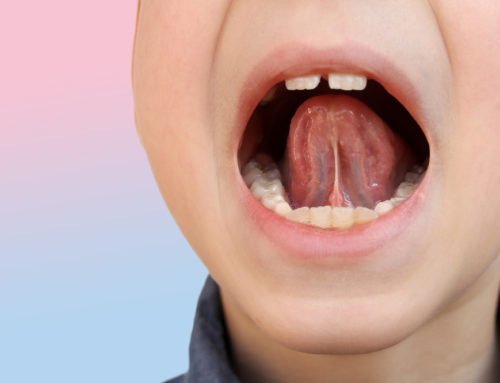Reasons For Your Child’s Puffy Gums
 If you notice sudden puffiness in your child’s gums, there are a variety of causes for this, and ways to treat and prevent this condition. Read on to learn more about the importance of healthy gums and how to prevent gum issues for your child.
If you notice sudden puffiness in your child’s gums, there are a variety of causes for this, and ways to treat and prevent this condition. Read on to learn more about the importance of healthy gums and how to prevent gum issues for your child.
Healthy Gums
Let’s start with some basics. Why are healthy gums important?
In short, your gums are integral to protecting and keeping your teeth healthy. They act as a “sealant” that keeps food and bacteria from getting into the deeper parts of your teeth. Your gums are also responsible for keeping your teeth in place.
This means that when gums are damaged or recede, they may begin allowing gaps to form in the protective barrier. Bacteria and food particles will have an easier time burrowing into those spots, resulting in an increased chance of tooth decay and infections.
Another reason to maintain our gum health is simply to keep discomfort at bay. Gum infections often result in pain and swelling, lowering your quality of life.
What Do Healthy Gums Look Like?
The first things to look out for when it comes to your gums are color and sensitivity. For most people, healthy gums are light pink and fit tightly around teeth. Keep in mind that some people do have naturally darker gums. This coloring can be normal as well.
The main thing to look out for is sudden changes in color or texture. For example, if you notice that your gums suddenly appear significantly redder than they have been, that may be a sign of an oral condition.
Your gums should also be painless and free of swelling or discomfort. As for texture, gums should be somewhat firm to the touch. They shouldn’t be too easy to wiggle around or shift. Sudden puffiness or swelling can also be a sign of unhealthy gums.
Common Causes Of Swollen or Puffy Gums
Sometimes, slightly swollen gums can be a one-off thing. For example, a stray kernel of corn stuck in between two teeth can cause a little bit of swelling. Swollen gums can also be one of the earlier signs of an oral condition. Inflammation and gum disease, for example, are two possible causes of swollen gums.
The best way to find out why your child’s gums are swollen is to see a dentist. In the meantime, however, here are a few of the most common reasons your dentist might talk about.
One of the most common reasons for puffy gums in babies and small children is teething. A little bit of discomfort is to be expected when your baby’s first teeth begin erupting from their gums. This discomfort can be accompanied by various symptoms such as biting, irritability, drooling, and of course, swelling.
Swelling of the gums is not always due to a dangerous oral health condition. Occasionally, it’s simply due to a bout of short-term irritation of the gums. For example, oral allergies, wisdom teeth, and surgical procedures can all cause a little bit of temporary puffiness in the gums.
It is still a good idea to mention gum irritation to your child’s pediatric dentist, even if you suspect it’s nothing. Those bi-annual dentist visits are your first line of defense against oral conditions.
Gingivitis is an irritation of the gums caused by plaque buildup. In many cases of minor gingivitis, the condition is fixable with a thorough dental cleaning and good brushing habits. When ignored, however, gingivitis can worsen and eventually lead to gum disease, a much more serious oral condition.
Children are often more prone to gingivitis since kids often have a hard time thoroughly brushing their teeth. That’s why it is so important to teach good oral health habits early on.
Periodontitis (aka gum disease) most often develops following gingivitis. Gum disease is a very serious condition that can cause problems such as bleeding gums, painful chewing, and much more. It’s imperative to begin combating gum disease as soon as it is found. Left untreated, periodontitis can worsen and cause significant damage to your oral health. Gum disease often comes accompanied by symptoms such as these:
- Receding Gums
- Swollen Gums
- Bad Breath
- Loose (Or Missing) Teeth
It’s crucial to tackle gum disease as early as possible since the symptoms can worsen over time. Eventually, gum disease can have a harsh effect on your quality of life. For example, gum disease can cause pain, discomfort, missing teeth, and aesthetic concerns.
The Stages of Gum Disease and Their Symptoms
Gum disease progresses through several stages, each with distinct symptoms.
- Gingivitis: In the early stage, known as gingivitis, you may notice your child’s gums becoming red, swollen, and prone to bleeding during brushing or flossing.
- Periodontitis: If gingivitis is left untreated, it can advance to periodontitis. Your child’s gums may start to pull away from their teeth, creating pockets that can become infected. Additionally, the bone supporting your child’s teeth can begin to erode.
- Advanced Periodontitis: Periodontitis can lead to your gums receding significantly, further bone loss, and the loosening of teeth. Without intervention, it could result in tooth loss.
You should always see a dentist for gum disease. A dentist can not only verify the condition but can also recommend a course of action. This can include a variety of treatments such as dental cleaning, scaling, or even antibiotics.
In the meantime, however, you will have a large role to play in your child’s continued dental health. In order to halt gum disease, it’s imperative that they begin taking care of their teeth properly. This care means daily brushing and flossing, as well as managing sugar intake and cavities.
Swollen gums from bacteria can begin as early as when they get their first tooth. Inflammation is frequently caused by bacteria that thrive in the warm, moist environment of the mouth. When these bacteria accumulate along the gumline, they can lead to the formation of plaque which can irritate the gums, causing them to become swollen and sensitive. This is particularly common in young children who are still learning the importance of dental hygiene. The introduction of new teeth provides additional surfaces for bacteria to adhere to, increasing the risk of gum inflammation.
Swelling of the gums can also happen around a single area rather than all across the gum line. When an infection is left untreated, it can cause an abscess (aka a pocket of pus) in the affected area. The best thing to do if you notice swelling around a single tooth or spot in your mouth is to see your dentist as soon as possible. Your dentist will be able to drain the abscess, treat the tooth, and possibly prescribe antibiotics for the infection.
Symptoms of an Abscessed Tooth
- Persistent, throbbing pain
- Red, swollen gums
- Swollen jaw or face
- Tender or sore tooth
- Fever
- Salty taste in the mouth
You should always consult with a dentist regarding a gum abscess. They can advise you on possible treatment options and evaluate your overall dental health. The important thing to keep in mind is that an abscess rarely appears on its own. It is most likely the result of an infection that needs to be treated as soon as possible.
If you suspect your child has an abscessed tooth, it’s crucial to seek dental care immediately. If left untreated, the infection can lead to serious complications.
Nutrient deficiencies play a significant role in overall health and particularly impact the health of your gums. Not getting enough nutrients can lead to a range of oral health issues. For example, vitamin C deficiency (aka scurvy), can lead to gum disease, loss of teeth, and swelling of the gums.
This condition illustrates just one of many potential consequences of not getting the proper nutrients. It’s important to understand that each nutrient plays a specific role in maintaining gum health. For instance, calcium and vitamin D are vital for maintaining the integrity of the jawbone that supports the teeth. Vitamins A and B complex help protect the gums against infections and help promote healing.
Although malnutrition is uncommon in industrialized nations, ensuring your child eats a nutritious, balanced diet can help protect their gums from becoming infected or inflamed. Each meal is an opportunity to support your child’s oral health by including fresh fruits, vegetables, dairy, and whole grains.
Making sure your child is eating a balanced diet rich in essential nutrients is key to maintaining their gum health. Regular check-ups with your child’s doctor can also help identify and manage any deficiencies early. If you notice persistent gum swelling or other concerning changes, it’s a good idea to bring this to your pediatrician’s or dentist’s attention—they can help rule out underlying health problems or provide guidance on next steps for care.
Swollen Gums With Braces

Many children get braces to correct tooth misalignments. If your child has ever undergone this procedure, you may already know that those initial days following the installation of braces can come with their fair share of challenges. Aside from general mouth discomfort, braces can cause a little bit of gum swelling. The important thing is to continue brushing and flossing thoroughly. If the swelling does not improve within a day or two, it’s best to consult with your pediatric dentist again.
Why Do Braces Make Gums Puffy
Braces can make a child’s gums puffy for several reasons, primarily linked to oral hygiene challenges and the body’s reaction to orthodontic treatment. When a child has braces, cleaning teeth becomes more complex due to the brackets and wires, which can trap food particles and plaque more easily than smooth teeth surfaces. If plaque accumulates around the braces and is not thoroughly removed, it can irritate the gum tissue, leading to inflammation and puffiness. This condition, known as gingivitis, is the body’s response to the bacteria found in the plaque.
The initial placement of braces and subsequent adjustments can exert pressure on the teeth and gums, potentially causing a mild inflammatory response as the mouth adapts to the new forces. This reaction can make the gums appear more swollen than usual.
Ensuring meticulous oral hygiene by brushing after every meal, using floss threaders, and rinsing with an antiseptic mouthwash can help to prevent these issues. Regular dental checkups and cleanings are also crucial during orthodontic treatment to maintain gum health and prevent puffiness. Orthodontists often provide specific instructions for care to ensure that braces do not lead to long-term gum problems.
Diagnosing and Treating Swollen Gums in Children
If you notice your child’s gums are swollen, the first step is not to panic—schedule a visit with their pediatric dentist. At the appointment, the dentist will carefully examine your child’s mouth and gums to determine the underlying cause of the swelling. This often involves a visual inspection, a gentle probing of the gums to check for tenderness, and sometimes taking dental X-rays to rule out deeper issues.
For cases where gum disease is identified (such as gingivitis or periodontitis), your child’s dentist may recommend a combination of treatments. These may include specialized antibacterial rinses or toothpaste to help control infection. In some situations, especially if the problem is more advanced, a professional dental cleaning (sometimes called scaling) may be needed. This procedure gently removes built-up plaque and bacteria from above and below the gumline, helping to halt the progression of gum disease and allow gums to start healing.
Your dentist will also review daily brushing and flossing habits with you and your child, offering tips to help keep those gums healthy going forward. With early intervention and the right care, most gum issues in children can be resolved before they lead to more significant problems.
Home Remedies for Swollen Gums
Although you should always talk to a dentist about swollen gums, there are some home remedies that may help relieve the swelling. Some methods you can try include:
Holding ice against the outside of your child’s cheek over the swollen area can help reduce inflammation and numb the area. If your child is old enough, they can hold pieces of ice in their mouth, but they should not chew the ice because it can cause damage to small teeth.
If your child’s swollen gums are tender, a warm compress can help soothe the area and improve the circulation. Use a warm, damp washcloth on the outside of your child’s cheek to gently apply heat to the area.
Tea tree oil is a natural essential oil known for its antibacterial and anti-inflammatory properties that can be mixed into water and used to rinse your child’s mouth. Tea tree oil should not be swallowed so only use this remedy with older children who can responsibly rinse and spit.
A simple saltwater rinse can be an effective home remedy for easing gum swelling in children—provided they’re old enough to swish and spit safely. Mixing a teaspoon of salt into a cup of lukewarm water, then having your child gently swish the solution around their mouth (without swallowing), can help reduce bacteria and soothe irritated gums.
You might be surprised to learn that simply making sure your child stays well-hydrated can support their gum health. Drinking water encourages saliva production, and saliva is nature’s own mouthwash—it helps rinse away food particles, flush out bacteria, and keep the environment in your child’s mouth balanced and healthy.
Remember, these compresses are intended as supportive care and aren’t a substitute for visiting your pediatric dentist. They can provide temporary comfort while you’re waiting for your appointment or deciding on the next steps. If swelling lasts longer than a couple of days or is accompanied by fever or severe pain, be sure to reach out to your dental provider promptly.
Encouraging Good Brushing and Flossing Habits in Kids
Teaching kids to brush and floss regularly can sometimes feel like herding cats, but a little creativity can go a long way! Here are some tips to help make dental hygiene part of the daily routine (without the groans):
Brush and floss with your child to show that oral care is for everyone, not just kids. Modeling good habits makes it more likely they’ll follow along.
Turn brushing into a game or challenge. Try using a timer or play their favorite two-minute song—maybe “Can’t Stop the Feeling!” for a mini dance party while they brush.
Consider a simple sticker chart to track daily brushing and flossing. Hit a certain number of days, and celebrate with a favorite activity or a small treat (ideally not candy!).
Let your child pick out their own toothbrush in a fun color or with a cartoon character. Giving them some choice makes the routine feel more personal.
Share fun stories or watch videos about tooth-friendly superheroes for added motivation—think “Brush-Man” rather than “The Sugar Monster.”
If flossing all teeth at once is overwhelming, start with just a few and work up to all of them as your child’s skills (and patience!) build.
Above all, be positive and pause to praise any effort. Consistency is key. Before you know it, brushing and flossing will be as automatic as morning cartoons.
Pediatric Gum Treatment in Middle Tennessee
Are you looking for a pediatric dentist in the Tennessee area? Snodgrass-King Dental has your back. We offer top-notch dental care for children and adults alike. Unlike other dental offices, we can offer dental services for the whole family. This way, you can know all of your family’s dental providers on a first-name basis.
With four locations throughout the Nashville area, there is a location you will be sure to call home. Be sure to visit our website to find your nearest location and learn more about our providers while there. We look forward to hearing from you!
Frequently Asked Questions
You should always see a dentist for gum disease. A dentist can not only verify the condition but can also recommend a course of action. This can include a variety of treatments such as dental cleaning, scaling, or even antibiotics. If the gum disease is more advanced, your dentist may recommend a procedure called scaling, which removes plaque and germs from teeth and gums to help slow the progression of the disease and encourage the gums to heal and reattach to the teeth. In some cases, they might also suggest using specialized mouthwashes or toothpaste to treat infection.
In the meantime, you will have a large role to play in your child’s continued dental health. In order to prevent gum disease it’s imperative that they begin taking care of their teeth properly. This means daily brushing and flossing, as well as managing sugar intake and cavities.
You should always consult with a dentist regarding a gum abscess. Do not attempt to drain an abscess at home as it can cause complications or worsened infection. They can advise you on possible treatment options and evaluate your overall dental health. The important thing to keep in mind is that an abscess rarely appears on its own. It is most likely the result of an infection that needs to be treated as soon as possible.
The first step to take regarding receding gums is to visit the dentist. Your pediatric dentist can evaluate your children’s teeth and gums to determine the cause of the receding gums. They can then take steps to clean out as much of the plaque as possible and provide you with instructions to slow further receding of the gums.
Gum disease often comes accompanied by symptoms such as these:
- Receding Gums
- Swollen Gums
- Bad Breath
- Loose (Or Missing) Teeth
It’s crucial to tackle gum disease as early as possible since the symptoms can worsen over time. Eventually, gum disease can have a harsh effect on your quality of life. For example, gum disease can cause pain, discomfort, missing teeth, and aesthetic concerns.
The short answer is no. In the majority of cases, gum tissue does not grow back once it’s gone. However, there are a few dental options for patients who have suffered significant gum recession. For example, a gum graft procedure involves taking tissue from another part of the mouth and grafting it to your gums. This helps the appearance of receding gums to be heavily minimized.
Developing proper oral hygiene habits is the main way to prevent swollen gums. Here are some key steps you can follow:
- Brush Properly: Have your child brush their teeth at least twice a day. Hold the toothbrush at a 45-degree angle and gently brush away from your gums. This technique helps to remove food and plaque from both above and below the gumline. You may even want to brush your teeth together to make it more personal and lead by example!
- Clean Between Your Teeth: Don’t forget to have your child floss daily. Whether you use traditional floss, interdental brushes, or water flossers, cleaning between your teeth is crucial in preventing gum inflammation.
- Use Helpful Products: Consider incorporating antimicrobial mouth rinses and tongue scrapers into your child’s routine. These products can help reduce bacteria that contribute to gum issues.
- Regular Dental Check-ups: Make it a point to visit your pediatrician for regular cleanings and check-ups. They can catch early signs of gum disease and address them before they become more serious.
- Act Quickly on Concerns: If you notice your child’s gums are swollen for more than a few days or if you’re worried about them, don’t wait for your next scheduled appointment. You will want to contact your pediatrician as soon as possible for a proper diagnosis and treatment.
But even with the best prevention, sometimes you may notice your child’s gums looking swollen or puffy. If that happens, don’t panic—just take a deep breath, and remember that your pediatric dentist is your best resource. Schedule an appointment as soon as possible so the dentist can examine your child’s mouth, identify the cause, and recommend the right treatment. If gum disease is the culprit, your dentist might suggest special mouthwashes or toothpaste to fight infection, and in some cases, may recommend a professional cleaning to remove stubborn plaque and bacteria.
In the meantime, there are a few things you can do at home to help keep your child comfortable:
- Gentle Cleaning: Continue to assist your child with brushing and flossing, but be extra gentle around the affected area to avoid further irritation.
- Saltwater Rinse: If your child is old enough, have them rinse with a simple saltwater solution (1 cup of lukewarm water mixed with 1 teaspoon of salt). Swish gently and spit—no swallowing! Doing this a few times a day can help calm gums and reduce bacteria.
- Soothing Compresses: Try using a warm compress to ease discomfort or a cold compress to help reduce swelling, depending on what feels best for your child.
- Stay Hydrated: Encourage your child to drink plenty of water. This helps increase saliva production, which naturally fights germs in the mouth.
By combining these prevention strategies with prompt care when issues pop up, you’ll help keep your child’s gums healthy and their smile bright!
 If you notice sudden puffiness in your child’s gums, there are a variety of causes for this, and ways to treat and prevent this condition. Read on to learn more about the importance of healthy gums and how to prevent gum issues for your child.
If you notice sudden puffiness in your child’s gums, there are a variety of causes for this, and ways to treat and prevent this condition. Read on to learn more about the importance of healthy gums and how to prevent gum issues for your child.






